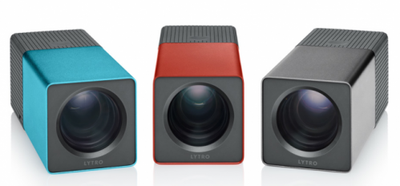
In the upcoming Inside Apple book by Adam Lashinsky, it's revealed that Steve Jobs had expressed interest and subsequently met with the CEO of Lytro, the makers the first light field camera. The relevant book quote posted by 9to5Mac states:
The company’s CEO, Ren Ng, a brilliant computer scientist with a PhD from Stanford, immediately called Jobs, who picked up the phone and quickly said, “if you’re free this afternoon maybe we would could get together.” Ng, who is thirty-two, hurried to Palo Alto, showed Jobs a demo of Lytro’s technology, discussed cameras and product design with him, and, at Jobs’s request, agreed to send him an email outlining three things he’d like Lytro to do with Apple.
Lytro received a lot of press last year when the first of its light field cameras went on sale in October. The product even received Popular Science's 2011 Innovation of the Year.
Light field cameras are a different take on photography by capturing "the entire light field" and saving all that information into a single file. Photographers can then edit the file afterwards in a number of unique ways -- including refocusing the image. This video walks through this unique ability:
(Video removed)
One of the limitations in the early light field cameras is a relatively low resolution. The first Lytro camera produces final photos of only 1.2 megapixels (1,080x1,080). The cameras also don't take any video and start at $399 for an 8GB model. The camera carries an elongated form factor that seems to be a result of the unusual optics required.
Given the hype surrounding the technology, it's perhaps no surprise that Steve Jobs found interest in meeting with the young company. That meeting, however, is getting special attention due to the fact that Walter Isaacson had said that Jobs wanted to reinvent television, textbooks and photography.
Apple just released their first digital textbooks for the iPad, and is expected to get into the television space. Apple's future goals for photography, however, remain unclear. Apple includes a digital camera its iPhones and has made progressive improvements in camera quality over the past few generations. While Apple no longer makes a standalone digital camera, they were one of the first to product a consumer targeted digital camera back in 1994.
Given the popularity of smartphones and the subsequent decline of point and shoot camera popularity, we'd expect any future Apple movement into photography would be centered around the iPhone.





















